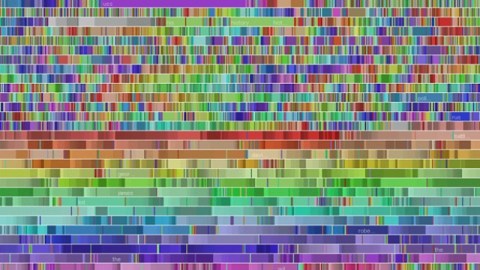A Stunning Vision of our Interoperable Future

For the past several years, we’ve been hearing a lot about Big Data. There’s a huge amount of information being collected about us and our world – so much that it seems impossible to organize or use to its full potential. Recently, for example, we learned that the Large Hadron Collider had to throw away much of the data it collected, because it simply couldn’t store and process so much. But is there a way to leverage this ocean of information to make our lives better?
Peter Lucas, Joe Ballay, and Mickey McManus say yes. They’re the authors of “Trillions”, a new book about the future of the global economy. They aren’t economists; they’re the founders and president of a design firm called MAYA. Yet their insights are critical to predicting how our economy will change, and how we can harness the changes for our benefit.
At the heart of “Trillions” is the power of the microprocessor. To date, it’s been mostly put at the service of personal computing, using individualized tools that only interact with each other when we tell them to. For the authors, we’ve gone about as far as we can go in this direction – and that’s why we’ve been so frustrated of late with the seemingly unmanageable firehose of data coming out of the global economy. If, as the authors put it, we want to tame the complexity of our world, we need to walk back down the mountain of personal computing and begin climbing Trillions Mountain, which is based on pervasive computing.
Pervasive computing is all about interaction between the billions – soon to be trillions – of microprocessors that have infiltrated virtually every aspect of our lives. “Trillions” argues that we can’t just design devices that help us to live better using data; rather, we have to design an entire living environment where those devices communicate with each other and with us. Only by building this interoperable network of humans and computers will we finally be able to exploit the massive potential of Big Data, and of ourselves.
There are tremendous opportunities implicit in the “Trillions” story, in part because of the concentration of economic power in our current world of personal computing. “We have to climb down from this crowded summit in which it’s almost not practical to consider competing with any of the major players,” Lucas said in an interview last week. “We have to get down to those spacious foothills. There’s going to be a period that will probably last many years where there will be so much experimentation to be done.”
This experimentation will surely reveal new ways to raise our living standards as well. “Come what may, there is just going to be an ocean of information,” Lucas said. “The question is, is it something we drown in, or is it something we learn to surf in?”
We know that companies like Google and SAS are already trying to index all the information in the universe and come up with new ways to process it. “Trillions” puts their efforts into a broader context of much greater change and implicitly suggests how to break open their markets. It offers the grand tableau: why we need to change our view of connectivity, and how to turn that new vision into reality. It may be the most prescient and influential book you read this year.
Full disclosure: I read, enjoyed, and endorsed MAYA’s book at about the same time we were discussing the possibility of collaborating on an unrelated venture. You can read about it here.





